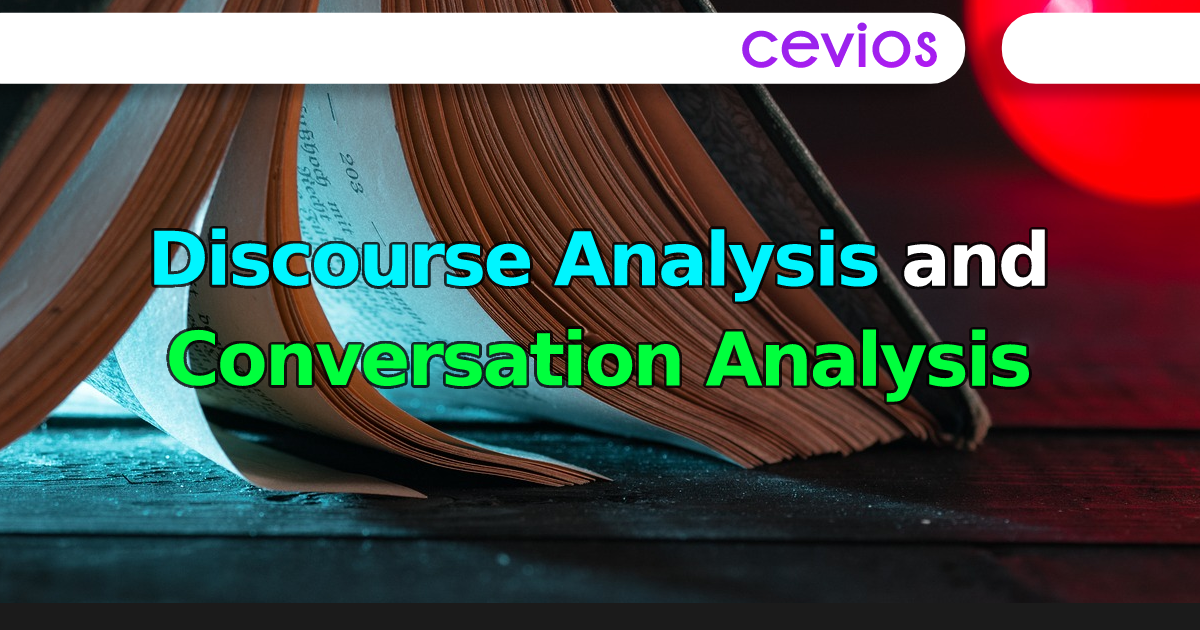Discourse Analysis and Conversation Analysis
Further Reading
The sources cited in the References (at the end of this chapter) will take the reader further along the particular paths sketched out in the text. Those who would like to follow up issues and topics I have only mentioned glancingly may like to pick among the following further readings.
Interpersonal Phenomenological Analysis
An approach to individual meaning-making through a discursive analysis of interviews. Smith, J.A. (2004) Reflecting on the development of interpretative phenomenological analysis and its contribution to qualitative research in psychology. Qualitative Research in Psychology, 1, 39-54.
Feminist Discourse Analysis
For a variety of examples of discourse analytic research projects that offer a specifically feminist approach, see:
Lazar, M. (Ed.) (2005). Feminist Critical Discourse Analysis: Gender, Power and Ideology In Discourse. Basingstoke: Palgrave.
Varieties of Critical Discourse Analysis
There is broad range within Critical Discourse Analysis. These sources, along with those cited in the text, will give an indication of the variety.
Rogers, R. (Ed.) (2003). An Introduction to Critical Discourse Analysis in Education. Mahwah, NJ: Lawrence Erlbaum.
Toolan, M. (Ed.) (2002). Critical Discourse Analysis: Critical Concepts in Linguistics (Vols I-4). London: Routledge.
Wodak, R. & Meyer, M. (Eds.) (2001). Methods of Critical Discourse Analysis. London: Sage.
van Dijk, T. (1993) ‘Principles of CDA’, Discourse and Society, 4, pp249-83.
Debate between Conversation Analysis and Critics
This exchange is often cited as a useful crystallisation of the debate – not always temperate – between Conversation Analysts and their discourse-analytically minded critics. I list the papers in their chronological order.
Schegloff, E. A. (1997) ‘Whose text? Whose context?’, Discourse and Society, 8, pp165-87.
Wetherell, M. (1998) ‘Positioning and interpretative repertoires: conversation analysis and post-structuralism in dialogue’, Discourse and Society, 9, pp387-412
Schegloff, E. A. (1998) ‘Reply to Wetherell’, Discourse and Society, 9, pp413-6.
Billig, M. (1999) ‘Whose terms? Whose ordinariness? Rhetoric and ideology in Conversation Analysis’, Discourse and Society, 10, pp543-558.
Schegloff, E. A. (1999) ‘“Schegloff’s texts” as “Billig’s data”: a critical reply’, Discourse and Society, 10, pp558-72.
Billig, M. (1999) ‘Conversation Analysis and the claims of naivety’, Discourse and Society, 10, 4, pp572-6.
Schegloff, E. A. (1999) ‘Naiveté vs. sophistication or discipline vs. self-indulgence: a rejoinder to Billig’, Discourse and Society, 10, pp577-82
Kitzinger, C. (2000) ‘Doing feminist conversation analysis’, Feminism and Psychology, 10, pp163-93.

